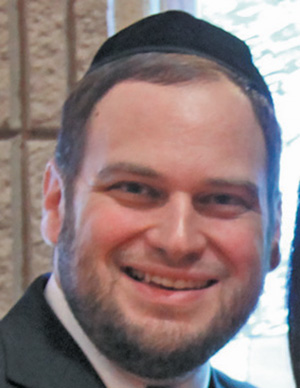
In his later years, when his health was failing, Rav Leib Chasman, zt”l, the late mashgiach of the Chevron Yeshiva, asked one of his talmidim to sleep in his home each night in order to help if he became in need of assistance. On each morning of Sukkot, Rav Chasman had the custom, as many people do, to make the bracha on his lulav and etrog inside of the sukkah. In order to get into his sukkah, he would slowly and carefully pass by his student who was sleeping nearby. One morning, the student woke up as his rebbi was passing and quickly pretended to be asleep so as not to make Rav Chasman feel badly that he had awoken him. Apparently, the rav realized that he had awoken his student and refrained from going to the sukkah to make the bracha on his lulav from that day forward.
There is no question that the student did not mind whatsoever, perhaps even saw it as an honor to be part of his rebbi’s mitzvah in some way, but, nevertheless, the rav taught him a valuable lesson. We must be cognizant of the feelings of others when it comes to the way we observe mitzvos. At times, we may become so fixated on accomplishing a given task that we end up forgetting our surroundings when performing the task. Rav Chasman was so sensitive to his student’s sleep that he therefore did not even attempt to enter the sukkah in the morning in fear of possibly waking him again.
The same is true when it comes to mitzvah observance. I cringe when thinking about the people on a plane who are awoken and pushed in their seats by others who are davening. The terrible chilul Hashem cannot objectively be seen by the person davening because they are so focused on accomplishing their goal, they don’t seem to see or care about the disturbance they may be causing others. While this may be true when it comes to strangers, the scenario becomes more sensitive when we make those around us, whom we care about and love, suffer because of our actions. Serving and tending to the needs of family and guests in the sukkah is no easy task. In order to fulfill the mitzvah of “simcha” on this Sukkot, let’s make sure that all of the members of our family are able to do so. Asking how we can help and following through with our offer is a great place to start. May we truly enjoy a chag sameach.
By Rabbi Eliezer Zwickler
Rabbi Eliezer Zwickler is rabbi of Congregation AABJ&D in West Orange, NJ, and is a licensed clinical social worker in private practice. Rabbi Zwickler can be reached at ezwickler@gmail.com.












